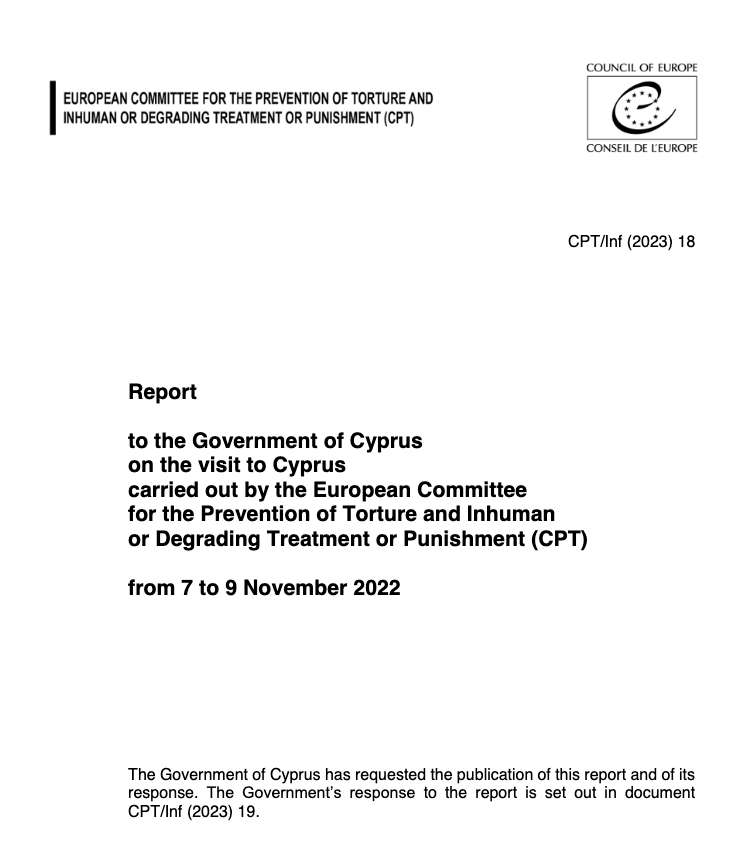Tunisia has come under renewed criticism from rights groups after authorities rounded up sub-Saharan migrants and asylum seekers and forcefully relocated them to a buffer zone between the Tunisian and Libyan border. Videos shared online show men, women, and children–some with injuries–stranded close to the sea, reportedly without any food or water. Surging Discrimination According […]
European Union
Bosnia and Herzegovina: Secrecy and Confusion Surrounding New Detention Centre for “Fake Asylum Seekers”
In 2022, the EU announced plans to fund a new detention unit within the grounds of a Temporary Reception Centre near Bosnia’s north-western border with Croatia. In recent months, however, significant confusion and controversy has emerged surrounding the centre. […]

Immigration detention facility in Estonia (from report of the European Committee for the Prevention of Torture 2014 visit to Estonia)
c. immigration detention facility ; (Read full CPT report) 31. The procedure for the detention and expulsion of foreign nationals is governed by the Obligation to Leave and Prohibition of Entry Act, the State Borders Act and the Act on Granting International Protection to Aliens. Persons who have not been permitted to cross the border […]

Italy and the EU “Complicit” in Crimes Against Non-Nationals in Libya
The brutal treatment of refugees and migrants in Libya has been widely condemned and reported. Intercepted by the country’s coastguard and returned to Libyan “disembarkation zones,” non-nationals are placed in immigration detention facilities where conditions are inhuman. They face indefinite detention with frequent water and food shortages; overcrowding; physical mistreatment and torture; forced labour and […]

Denmark Pauses Plans to Outsource Asylum Processing to Rwanda
On 25 January, Denmark announced that it was pausing its controversial plan to outsource asylum processing to Rwanda. However, the country has expressed its intention to collaborate with other EU states in establishing a processing facility outside Europe. First proposed by the Social Democrat party in the run-up to the country’s 2019 general election, the […]

The removal operation & Repatriation Centre 127bis: preparations and conduct (from report of the European Committee for the Prevention of Torture 2022 visit to Belgium)
A. The removal operation: preparations and conduct; (Read full CPT report) 7. According to the data provided by the Immigration Office, published by the GeneralInspectorate of the Federal Police and Local Police (AIG)7 in its 2021 Annual Report on forced returnmonitoring, a total of 1 984 persons were subjected to a forced removal from Belgium, […]

Czech Republic: Covid-19 and Detention
Sharp increases in the numbers of unauthorised border crossings from Slovakia into neighboring Czechia have led to tensions between the two countries. Slovak Prime Minister Eduard Heger planned to meet with his Czech counterpart in Prague on 10 November to discuss Czechia’s introduction of border controls, which Slovakia claims may undermine Schengen freedom of movement […]

Transfer to Larnaca International Airport from report of the European Committee for the Prevention of Torture 2022 visit to Cyprus)
Transfer to Larnaca International Airport; (Read full CPT report) 40. Transport of detained foreign nationals on the airport for removal purposes is governed by Police Regulation 5/4 of 4 February 2021 “on the transport of convicts”. Amongst other things, the Regulation stipulates that, as a rule, handcuffs must be used, that escorting police officers shall […]

Latvia: Covid-19 and Detention
Latvia has violently pushed back and arbitrarily detained scores of refugees and migrants, including children, in secretive tented camps along its border with Belarus, says a recently published Amnesty International report. The rights group contends that authorities have used undue force including torture to stop “illegal crossings” since declaring a state of emergency in mid-2021. […]

Spain: Covid-19 and Detention
The deaths of 37 migrants and asylum seekers in late June along the border fence separating the Spanish enclave of Melilla from Morocco have spurred numerous protests across cities in both countries. Thousands of protestors gathered in Barcelona, Malaga, Vigo, San Sebastian, and Melilla to denounce migration policies as well as the militarisation of Spain’s […]




